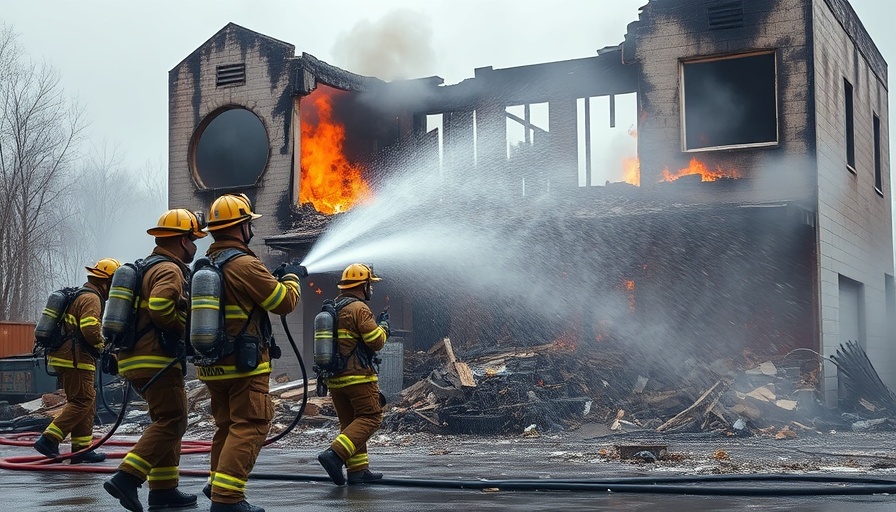
Trump's Frustration: A Reflection on Global Consequences
Former U.S. President Donald Trump's recent remarks about Russian President Vladimir Putin have ignited discussion around the ongoing conflict in Ukraine. As Russian attacks intensify, Trump’s outspoken frustration, particularly in light of the devastating aerial assault that killed at least 12 people and injured dozens more in Ukraine, underscores a complex global dilemma. Trump remarked, “I’m not happy with Putin,” highlighting the humanitarian crisis that these attacks exacerbate.
The Day Ukraine Bled from Bombardment
In what has been summarized as the most significant aerial offensive since the beginning of Russia's invasion of Ukraine, a coordinated attack using 367 drones and missiles targeted Ukrainian cities, with the capital Kyiv among them. The consequences of such aggression not only result in immediate loss of life and injury but also instigate broader regional instability and challenge the moral fabric of international relations. Key political figures, like Keith Kellogg, special envoy to Ukraine, condemned the attacks as a “clear violation” of international laws, amplifying the urgent call for accountability and a reevaluation of diplomatic strategies.
Historical Context: Understanding the Evolving Russia-Ukraine Conflict
To grasp the depth of Trump’s statements and their implications, we need to consider the broader historical context. Since the annexation of Crimea in 2014, the Russia-Ukraine relationship has deteriorated significantly. What began as a regional conflict over territorial integrity evolved into a substantial humanitarian crisis, bringing into focus issues of sovereignty, power dynamics, and foreign intervention. Russia’s military strategies, now return to the spotlight, warrant a critical analysis of international responses and the effectiveness of sanctions that Trump had previously championed.
Perspectives on Trump's Statements: Who's Happy and Who's Not?
Trump’s declaration of disappointment towards Putin could be interpreted as an attempt to align with humanitarian interests. It's vital to question if such statements hold weight beyond the realm of media attention. Are there factions within the Republican Party echoing similar sentiments, or are they supportive of Trump’s historically close ties to Putin? The polarizing nature of Trump’s leadership offers a springboard for varying perspectives on foreign policy and international ethics.
Future Predictions: What Lies Ahead for Ukraine?
As international scrutiny on Putin continues, the prospect of sanctions becomes a crucial point of discussion. Trump has hinted at potential new sanctions aimed at Russian leaders, but will they impact the Kremlin's decision-making? Analysts predict a complex next phase for Ukraine’s war. In a delicate balancing act, Ukraine must navigate its defensive strategies while fostering global support in an unstable international landscape. Enhanced sanctions could push Russia, but they may also escalate military engagement.
Actions Toward Resolution: A Call for Unity
Despite the complexities, some urge for unity among global leaders to reinforce a unified stance against aggression. Trump's approach, although fraught with controversy, might serve as a catalyst for renewed diplomatic dialogues aimed at bringing peace. Countries across the globe must engage collectively to avoid further humanitarian crises. Activists and global leaders alike must rally towards resolution, upholding international norms that protect civilian lives from military confrontations.
Engaging in discussion on these matters is more vital than ever. From public statements to international collaboration, every conversation counts in the quest for peace and stability. Join the movement advocating for an end to the violence and support efforts in Ukraine for a promising future.
 Add Row
Add Row  Add
Add 




 Add Row
Add Row  Add
Add 

Write A Comment